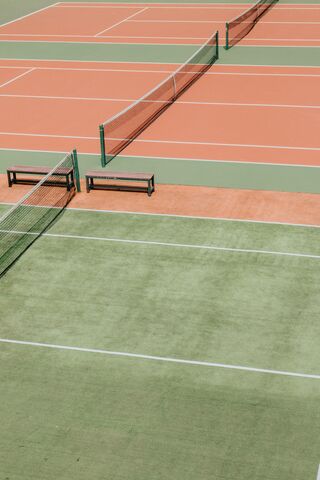Education
Do You Avoid Learning New Things?
A Personal Perspective: Some people cannot tolerate being a novice.
Posted December 8, 2022 Reviewed by Vanessa Lancaster
Key points
- It's hard to be a beginner learning something new.
- Some people avoid learning new things because they cannot tolerate being "bad" at something.
Pickleball has 4.8 million players in the United States. The growth rate for the last two years is 39.3 percent. The number of players has nearly doubled in the last seven years (2014-21). (“Pickleball Popularity Statistics and Demographics: Facts & Infographic”)

I am one of the millions who have started playing pickleball, and it has taught me a lot about myself. I am a convert from tennis to pickleball, and I am still learning the strategy of the game as well as working on my shots.
There are some basic shots in pickleball that are different than tennis. First, you only get one serve, and it is underhand rather than thrown up in the air. There is the cross-court dink, which is very hard to do.
Then there is the lob, which is harder than it is in tennis because the court is shorter. Getting the ball over someone’s head but within the court is not easy. There’s the drive groundstroke that requires hitting the ball as hard as you can, but if you do not have a lot of upper body strength, it is a difficult shot. In short, there is a lot to learn.
I first started playing with a group of converts from tennis, so we were all in the same position. We were learning a new game, and we rotated partners and laughed at our mistakes. But as I have progressed, I have started to play with people who are more experienced players. They want to play with the strongest partner, and I am not at the top of the field.
There are carpenters and office managers, and teachers in the group. They do not know I am a psychoanalyst or that I am a retired professor of sociology. All they know is that I have trouble with my cross-court dinks and usually can’t maintain a rally of drive shots after the first two or three. Winners want to play with other winners, so I am not sought out as a partner when there is a rotation of players. I am embarrassed; I feel humiliated. It's hard to be a beginner learning a new game.
It is painful when players look past me to choose a stronger player as a partner. I feel like I did when I was in elementary school. I want to stop playing and go home. I want to go back to tennis, where people want to be my partner. But I am not doing that. I am accepting my lowly position in the pickleball group–I’m learning.
The discomfort of learning a new sport is a metaphor for learning anything new. My narcissism is bruised–everyone else is better than me. I can tolerate the injury because I remind myself that I am good at other things. I am a good therapist; I am a good tennis player. But the experience of learning something new and comparing myself to those who are more experienced has taught me something more important than pickleball. It has given me insight into some of my patients (and friends) who avoid learning new things because they cannot tolerate the hit to their ego that is part of learning something new
Audrey wants to learn French and Spanish but does not want to be a beginner. She compares her fledgling accent with that of native speakers and feels humiliated. She has decided not to learn a new language. Sharon gave up trying to learn pickleball after two lessons because she felt foolish trying to hit the ball and missing.
Beatrice wants to play bridge with her friends, who have a regular game. But she cannot tolerate being a beginner. She wants to be able to play with the conventions her friends use, but that will involve taking lessons and making mistakes while gaining mastery. She’s decided not to learn bridge.
Learning something new requires a period of being “bad” at it. Other people can do it better. They have already learned it! For some people, the novice period is intolerable because they experience it as a hit to their ego. It destabilizes their sense of self. For those vulnerable people, the world stays smaller, and opportunities for growth are avoided.


